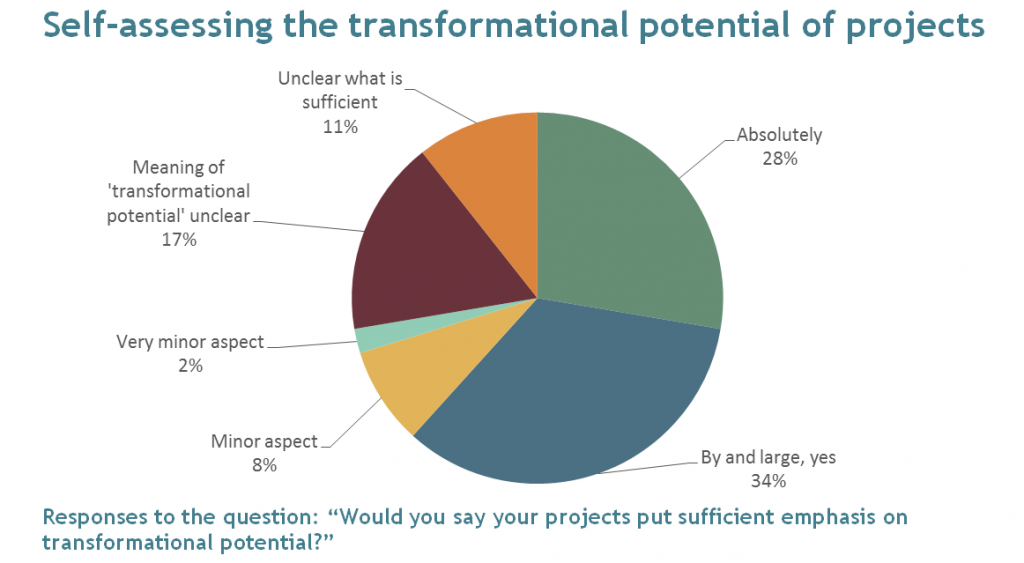Are GCF-supported projects truly transformational?
Critics say the GCF is failing to fund transformative projects. But what do project developers think?

When it was established at the 2010 UNFCCC conference in Cancún, the Green Climate Fund (GCF) was heralded as a departure from the status quo of climate finance. A new climate change mitigation and adaptation fund, the GCF would support innovative projects that deliver “transformational” impacts. From the start, however, the GCF has endured its share of scrutiny.
The latest round of criticism hits at one of the key aims of the fund. Critics contend that the GCF is failing to embody the transformative spirit of its founding. Héla Cheikhrouhou, the former Executive Director of the Fund, recently entered the debate, expressing a similar concern: “Some of these projects [which have been approved] of course they are good for the development of the country, but they are not paradigm-shifting, game-changing types of projects.” (“Green fund investing in the wrong projects, says former chief”, Financial Times, 4 September 2016 )
But what is the view from the project development perspective?
E Co’s latest GCF insight brings empirical evidence to this debate. Ahead of the GCF’s fourteenth Fund board meeting in Songdo, E Co. reached out to National Designated Authorities (NDAs) (those responsible for giving a green light within each country to projects) and accredited entities (those that are accredited to submit proposals), to understand whether and how they address paradigm shift during project development.
The E Co. survey reveals that GCF project development is heavily dictated by national priorities. Fully 94% of responding NDAs and 65% of accredited entities felt that the fit with national priorities is among the most important factors in approving a project. The high level of focus on national priorities is to be welcomed since it reflects the country driven approach that the GCF is also seeking. However, 69% of NDAs also felt the GCF provided an opportunity to do new, innovative kinds of projects in their countries. Accredited entities had a more diverse perspective. While some viewed the GCF as a source of funding for innovative projects (44%), more accredited entities saw Fund support as a way to expand existing activities (56%).
An interesting finding from the survey came when NDAs and accredited entities were asked whether their projects put “sufficient emphasis on transformational potential”. While few made selecting transformational projects their highest priority, a significant majority of respondents (62%) felt that their projects have sufficient transformational potential. Only 10% of respondents said that the transformational potential of their projects is a minor component.
Given the comments of some critics, these results seem to reflect a lack of consensus about what constitutes a “transformational” project. Indeed, 28% of respondents indicated that the meaning of “transformational” is unclear or they are uncertain what level of transformation is sufficient.
The E Co. survey offers several lessons for addressing the issue. First it highlights the already strong alignment between the GCF’s country driven approach and the focus on national priorities by NDAs and accredited entities. At the same time the need to drive a paradigm shift in climate change mitigation and adaptation projects lies at the heart of the GCF mission. Differing views among NDAs, accredited entities and other stakeholders about what constitutes a paradigm-shifting” or “transformational” project highlights the importance of clear communication to avoid potential conflict between these two objectives.
Survey respondents were clear about the need for more support and guidance. 52% of NDAs and 41% of accredited entities said that clearer guidance from the Fund would help them to align projects with GCF objectives and emphasize projects’ transformative potential better. 48% of the NDAs went on to state that they would appreciate more technical and/or financial support for this purpose. As parties converge around a shared definition of key phrases, we may enter a more productive phase in the debate over the “paradigm shifting” element of the GCF’s mandate.
As part of its independent work with the Fund, E Co. has already begun to respond to this need by providing deeper thinking and experience sharing to help ensure project formulation goes beyond business as usual
Initiatives like the GCF insight series increase the accessibility of the Fund, providing nuanced surveys and reports that deliver a thorough understanding of proposal development. This year, E Co. also provided expert training in GCF project design through an online course held in collaboration with UNEP DTU and the University of Twente.
Knowledge sharing initiatives such as these will enable a stronger pool of GCF applicants—and better proposals with greater transformational potential. Contact us to discuss how we can support your GCF proposal.